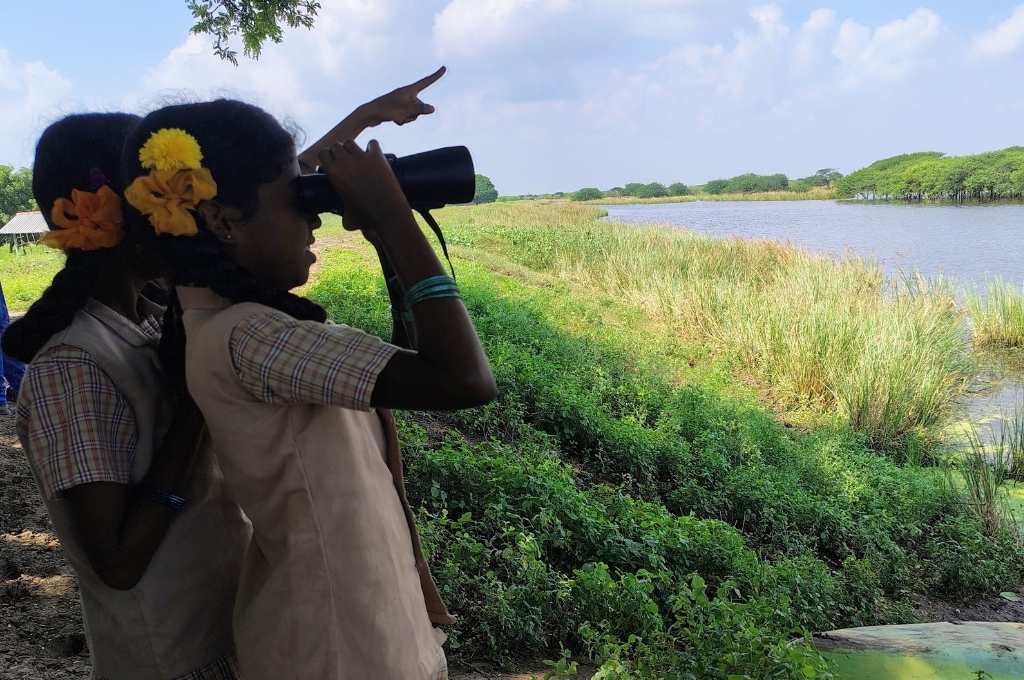Beyond classrooms: Rethinking environmental education

I am a senior researcher at Care Earth Trust, an organisation that works on biodiversity conservation in Chennai. Part of my work is focused on engaging children and young adults in ecology and environmental education across multiple districts in Tamil Nadu.
My team and I have conducted numerous nature walks and educational sessions with children from diverse backgrounds, spanning different age groups and schools in urban, semi-urban, and rural areas. What has consistently stood out to me is how the environment is perceived and understood differently across these groups.
A revealing incident that speaks to this difference in environmental knowledge occurred during a nature walk with students from a private school to the Pallikaranai marsh. Despite many students likely crossing this marshland on their daily commute, most of them claimed it was their first time hearing about the area when we asked them what they knew of it.
Interestingly, these students could eloquently discuss global environmental concepts and name ecological zones such as savannahs and prairies. However, their local ecological knowledge proved surprisingly limited. During a campus tree mapping exercise, one student was unable to identify a coconut tree.
Our experience with children from a small government school in Tirunelveli district presented a completely different narrative. During a World Rivers Day event at the Sutthamalli check dam along the Thamirabarani river, children as young as nine and 10 years old demonstrated an intimate understanding of their local environment. Our planned session involved distributing activity sheets on which children could play bingo to identify leaf patterns and types. We also focused on explaining the hydrology of check dams.
By the time we reached the walking point, they had independently identified all the trees on the bingo sheet. “We bathe in the river every day, so we know what trees grow here,” they confidently stated. Their comprehensive local knowledge about the trees, surrounding landscape, river course, and the villages the river crosses was in stark contrast to the disconnect many urban children have with their immediate natural surroundings.
This contrast became evident during a session on urban biodiversity with students from classes 6–8 at a private school in the heart of Chennai. Before the session, we asked the students to write the first word that came to their mind when they thought of the words ‘forest’ and ‘city’. For forests, they all wrote ‘green’, ‘trees’, and ‘animals’. Conversely, for cities, 22 out of 30 students wrote ‘buildings’, and the remaining described urban spaces as ‘roads’, ‘polluted’, ‘grey’, and ‘overcrowded’.
This highlights a gap in how children view and recognise urban biodiversity. Activities such as treks and birdwatching are often seen as exclusive to distant forests, reinforcing the notion that meaningful engagement with nature requires travel. While school curriculums emphasise global concepts like renewable energy, there’s a pressing need to balance this with opportunities to observe and engage with one’s immediate environment. Wetlands, parks, and other urban ecosystems can serve as excellent starting points for introducing children to blue–green spaces around them. Children growing up in urban areas need far more exposure to their local ecology through hands-on outdoor learning.
Anjana Vencatesan is a programme lead for policy research at Care Earth Trust.
—
Know more: Learn how children are teaching their mothers about the ill effects of cooking on chulhas, burning garbage, and not taking public transport.



